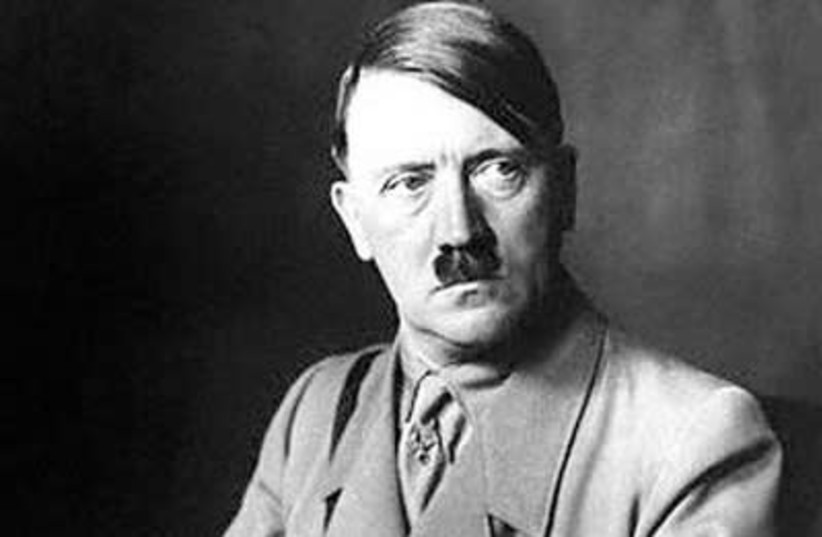July 18, 2022 marks 97 years since the publication of Mein Kampf, Nazi leader Adolf Hitler's manifesto.
The infamous antisemitic text, whose name is German for My Struggle, focused heavily on the supposed vile Jewish plot to seize total domination over the world. While struggling with poor sales at first, it became a major bestseller amid the Nazi's rise to power.
Today, Mein Kampf remains popular among neo-Nazis and white supremacists to this day.
<br>Background
The book was written while Hitler was in prison for high treason following his participation in a failed coup known as the Beer Hall Putsch in 1923.

While behind bars with little to occupy his time for the duration of his five-year sentence, Hitler began writing.
The text of Mein Kampf described the many dangers of the Jews and how he learned to despise them, claiming that they were responsible for the many problems in the Weimar Republic.
At the time, Germany was experiencing a period of national humiliation following the end of World War I and the treaties imposed on it by the Entente.
Furthermore, it was undergoing a period of economic decline.
These factors, he said, were caused by the Weimar Republic leadership, Communists, Social Democrats and the Jews – though the former three all were actually working at the behest of the Jews, according to Hitler.
Hitler further wrote of the validity of The Protocols of the Elders of Zion, an antisemitic text that wrote of a supposed sinister Jewish plot to take over the Earth – though said text is completely false.
He would further stress the inherently racial superiority of the "Aryan" people over other races, especially Jews and Slavs.
<br>Influence on Nazi policies
While the book undoubtedly is antisemitic and no doubt contributed to the Holocaust, it didn't actually advocate genocide, per se. In fact, the decision to commit genocide and fully exterminate all Jews on Earth wasn't made for several more years.
However, the text did still lay the groundwork for some of Nazi Germany's ideas and policies.
Part of this was the idea of Lebensraum, which stated that Germans needed more "living space" for Germans - especially in Eastern Europe. This was compounded by the presence of so many ethnicities and nationalities in cities like Vienna.
What would be needed, Hitler argued, was a military expansion into Eastern Europe.
"A boring tome that I have never been able to read."
Benito Mussolini on Mein Kampf
Popularity post-publication
Mein Kampf was first published in 1925, with its second volume published in 1926. However, it actually sold rather poorly upon release and for several years.
At the time, it mainly attracted the interests of fellow followers of Nazi ideology, though not everyone liked it.
Most notably, Hitler's idol and future ally, Italian fascist dictator Benito Mussolini, described Mein Kampf as "a boring tome that I have never been able to read," further describing the book's beliefs as "commonplace cliches."
However, after Hitler rose to power some years later, interest in the book and its popularity skyrocketed. Soon it became a national bestseller.
Post-war status
Following the war, the publication of the book ceased. This was at the behest of the holders of the copyright to Mein Kampf, the German state of Bavaria.
However, after the copyright ended at the very end of 2015, publication soon began again.
Publishing Nazi propaganda is forbidden in Germany, however, publication of an annotated version for educational purposes was allowed, done in part to prevent it from being appropriated by neo-Nazis, who still treat it as an important text.
It soon sold out quickly once it was put up on Amazon. By 2017, it became a best-seller in Germany again.
However, this decision was still heavily controversial, especially among the Jewish community. Indeed, Amazon would later take Mein Kampf off its site.
Currently, Mein Kampf is available in countries worldwide, including in Israel, where a translation made by Holocaust survivor Dan Yaron was published in 1995 by the Hebrew University of Jerusalem.
Interestingly, a little-known sequel was also written by Hitler in 1928 titled Zweites Buch, which means Second Book, which still blamed the Jewish people but focused more on foreign policy.
It was never published and was only discovered by US troops in 1945, where its authenticity was verified.
Zweites Buch was stored away until a historian rediscovered it years later and finally published in English in 2003.
